Civic Learning Summit 2.0
February 14, 2017
Sacramento, California
At a summit convened by California Chief Justice Tani Cantil-Sakauye, justices, judges, educators, and students from around the state gathered to talk about the progress they’ve made in the last four years in advocating for civic education in California and to discuss next steps. The summit, held Feb. 14 in Sacramento, featured Chief Justice Cantil-Sakauye, U.S. Supreme Court Justice Anthony Kennedy, and State Superintendent of Education Tom Torlakson.
Summit attendees also heard from Speaker Pro Tem Kevin Mullin, Secretary of State Alex Padilla, and Sacramento Mayor Darrell Steinberg, who commended the Chief Justice on her successes in revitalizing civic education, which include the influential task force report, Revitalizing K-12 Civic Learning in California, and annual Civic Learning Awards.
Justice Kennedy stressed the importance of teaching democracy and the constitution at a young age. "It's inspiring to hear our young people today," Kennedy said, referring to the students from former Civic Learning Award winning schools. "But we have measures of countless students who do not know the meaning of our heritage, who do not know the meaning of freedom," he added.
Focused on the future of civic learning in California, one of the summit panels discussed equity and access to civic learning opportunities, which include civic efforts across the country to reach youth in the juvenile justice system and English-language learners. The panel included Stacy Boulware Eurie, presiding judge of the Juvenile Court in Sacramento County; Simon Canalez, district superintendent for Brawley Union High School; Ted McConnell, executive director of the Campaign for the Civic Mission of Schools; and Mike Kirst, president of the State Board of Education.
Chief Justice Cantil-Sakauye ended the summit by emphasizing the importance of teaching young people about how the justice system works and the role of impartial courts. She recognized judicial officers and courts that are involved in public outreach programs, which include Peer Courts, JusticeCorps, and Keeping Kids in School.
“Together we have made real progress,” Cantil-Sakauye said. “As we look ahead, each of you can make a difference by continuing to educate and celebrate the power of our democracy and the rule of law.”
Civic Learning Summit
February 28, 2013
Sacramento, California
On Feb 28, Chief Justice of California Tani G. Cantil-Sakauye stood in front of an assembly of some 200 lawmakers and other government officials, business and labor leaders, representatives of the state bar and other justice partners, teachers and students to talk about securing the future of California.
.JPG) The Chief Justice helped open the Civic Learning California Summit, an event organized to bring attention to the need for civic engagement and literacy in California schools. “We knew if we planned a civic summit, you would come," Cantil-Sakauye said. "And you did, because we all share one common interest: a future where democracy in our state continues to thrive and flourish. We all understand that the common vehicle to achieve that future is civic learning.”
The Chief Justice helped open the Civic Learning California Summit, an event organized to bring attention to the need for civic engagement and literacy in California schools. “We knew if we planned a civic summit, you would come," Cantil-Sakauye said. "And you did, because we all share one common interest: a future where democracy in our state continues to thrive and flourish. We all understand that the common vehicle to achieve that future is civic learning.”
"It’s important,” the Chief Justice continued, “that all Californians understand not only how democracy works, but how their participation in the democratic process guarantees that their voices are heard. The future of our democracy depends on the civic engagement of its people.”
U. S. Supreme Court Justice Sandra Day O’Connor
The keynote speaker at the summit, retired U. S. Supreme Court Justice Sandra Day O’Connor, also expressed concern about the future of American democracy.
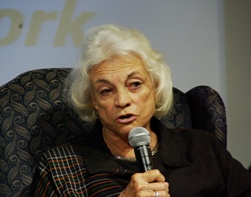 “This country matters to me,” Justice O’Connor said, “to you, to all of us, and frankly to the world. In order to secure the future of our democracy, our citizens must be engaged in the running of it. And that engagement starts at an early age.”
“This country matters to me,” Justice O’Connor said, “to you, to all of us, and frankly to the world. In order to secure the future of our democracy, our citizens must be engaged in the running of it. And that engagement starts at an early age.”
After she left the bench, Justice O’Connor founded iCivics, an interactive website that encourages young people to learn about civics. “Securing the future of our democracy requires teaching the next generation to understand and respect our system of governance, and then passing that knowledge and passion along to the next generation.”
Additional speakers at the summit included Secretary of State Debra Bowen, Superintendent of Public Instruction Tom Torlakson, and CEO and Executive Director of the State Bar, Joseph Dunn, and a panel of leaders from education, labor, law, and business, all involved in passing the light of democracy on to the next generation.
Civic Learning Awards
A highlight of the summit was presentation of the new Civic Learning Awards. Designed to honor successful efforts to engage high school students in civic learning and single out models that can be replicated in other high schools, the award recognized 22 high schools for their efforts. Three schools—Alliance Judy Ivie Burton Technology Academy in Los Angeles, Golden Valley High School in Bakersfield, and San Marino High School in San Marino—received the Excellence Award, the highest award offered.
Diana Ledezma, a senior at Alliance Judy Ivie Burton Technology Academy, was chosen as the summit’s student speaker. “From my experience,” she said, “I learned that anyone can make a difference. I believe people should work for change and get involved, because one person doing something can inspire other people to do good. When people see someone trying to help, they want to help and get involved, and that’s the feeling we need in every community.”
The Power of Democracy
“Democracy is a use-it-or-lose-it proposition,” Cantil-Sakauye said. “California is complicated, and there are challenges we must face every day to maintain a living, thriving democracy. Democracy is the key to perpetual freedom. In order to secure the rights to that future, we have to be civically engaged.”

.JPG) The Chief Justice helped open the Civic Learning California Summit, an event organized to bring attention to the need for civic engagement and literacy in California schools. “We knew if we planned a civic summit, you would come," Cantil-Sakauye said. "And you did, because we all share one common interest: a future where democracy in our state continues to thrive and flourish. We all understand that the common vehicle to achieve that future is civic learning.”
The Chief Justice helped open the Civic Learning California Summit, an event organized to bring attention to the need for civic engagement and literacy in California schools. “We knew if we planned a civic summit, you would come," Cantil-Sakauye said. "And you did, because we all share one common interest: a future where democracy in our state continues to thrive and flourish. We all understand that the common vehicle to achieve that future is civic learning.” “This country matters to me,” Justice O’Connor said, “to you, to all of us, and frankly to the world. In order to secure the future of our democracy, our citizens must be engaged in the running of it. And that engagement starts at an early age.”
“This country matters to me,” Justice O’Connor said, “to you, to all of us, and frankly to the world. In order to secure the future of our democracy, our citizens must be engaged in the running of it. And that engagement starts at an early age.”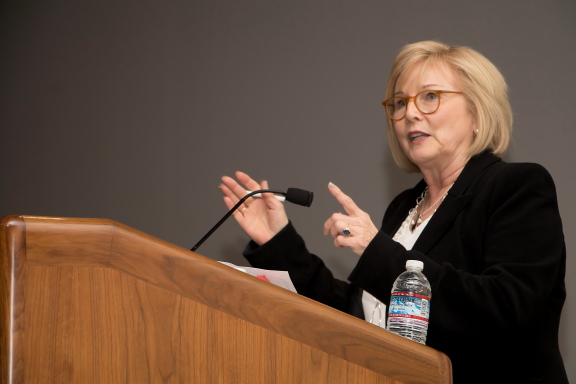
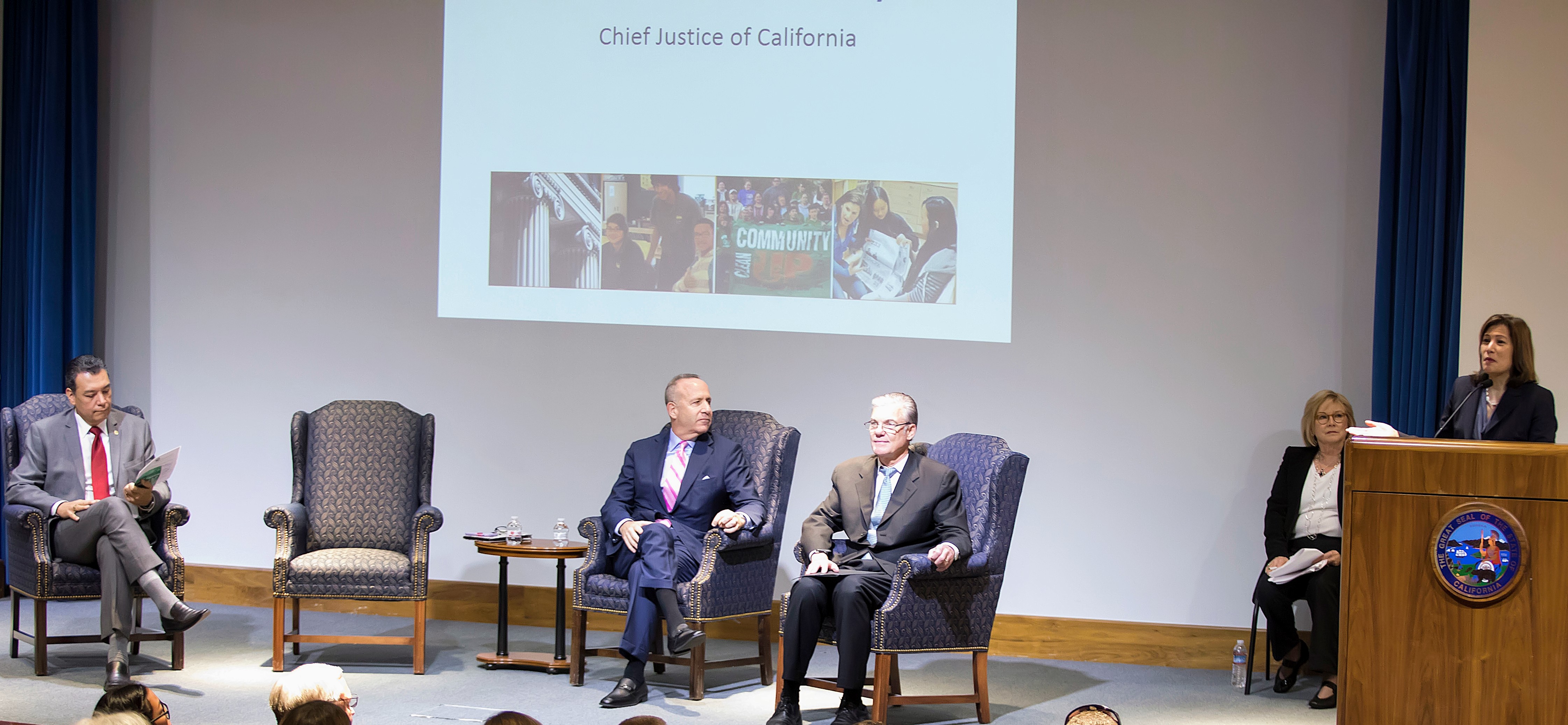
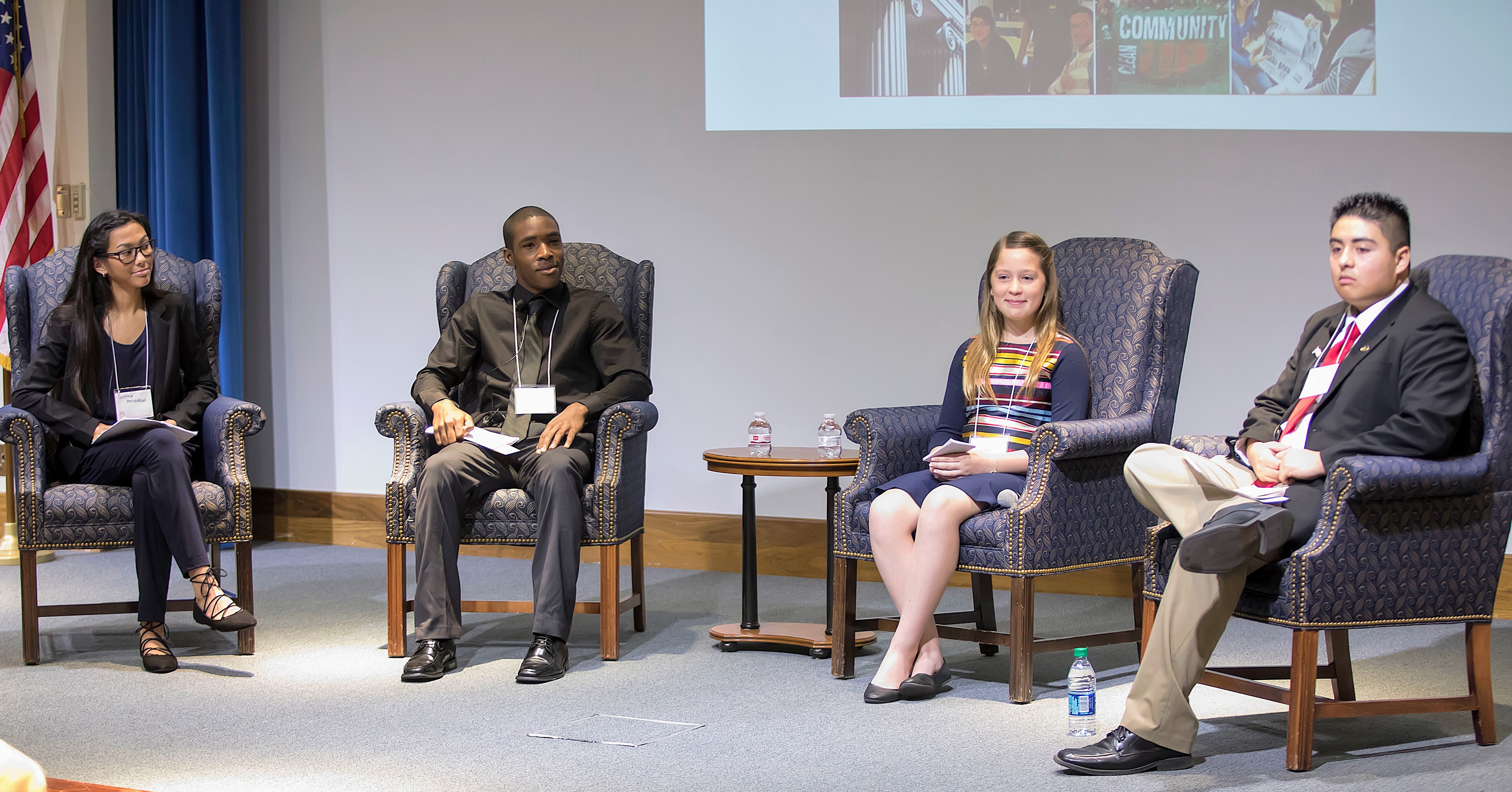

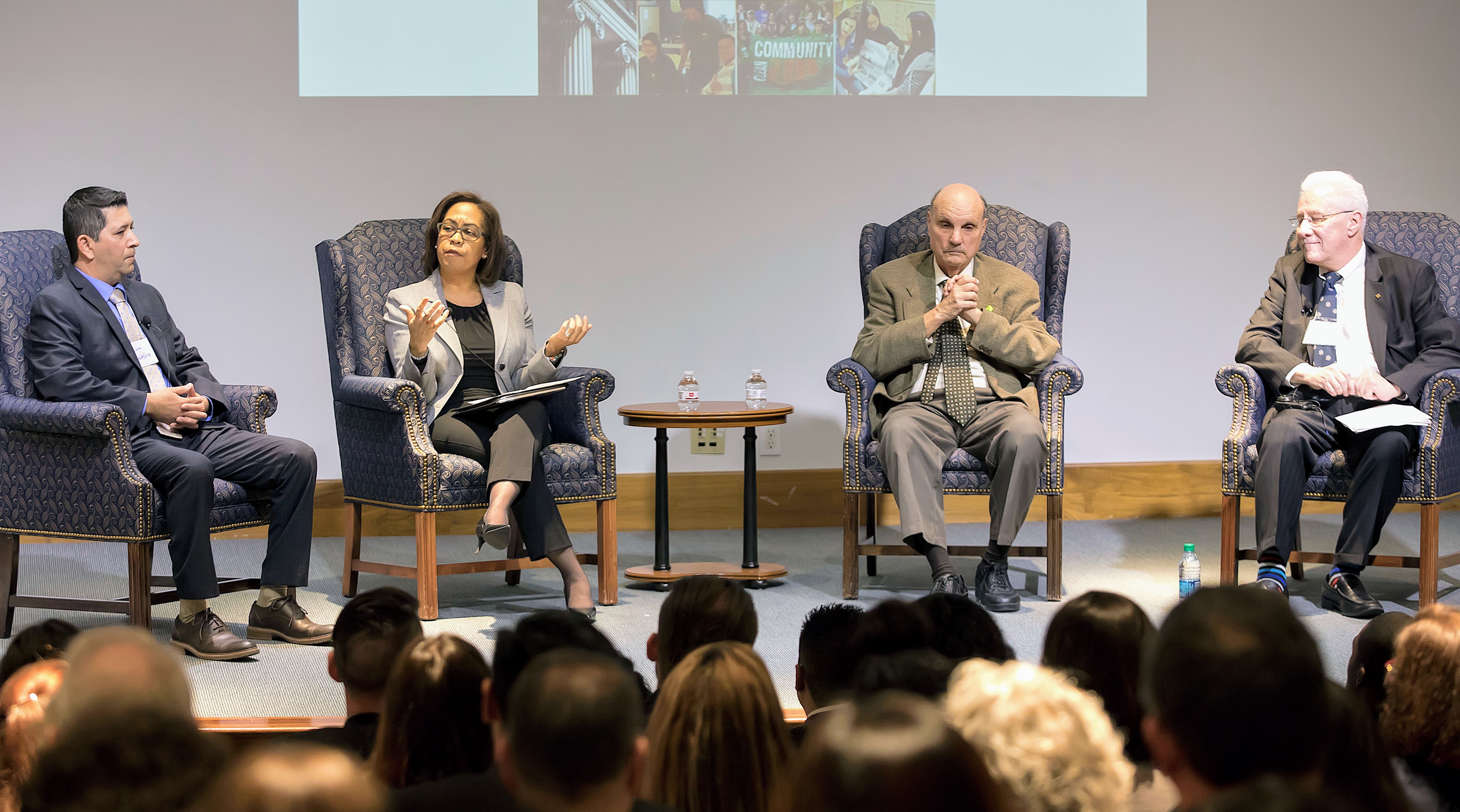
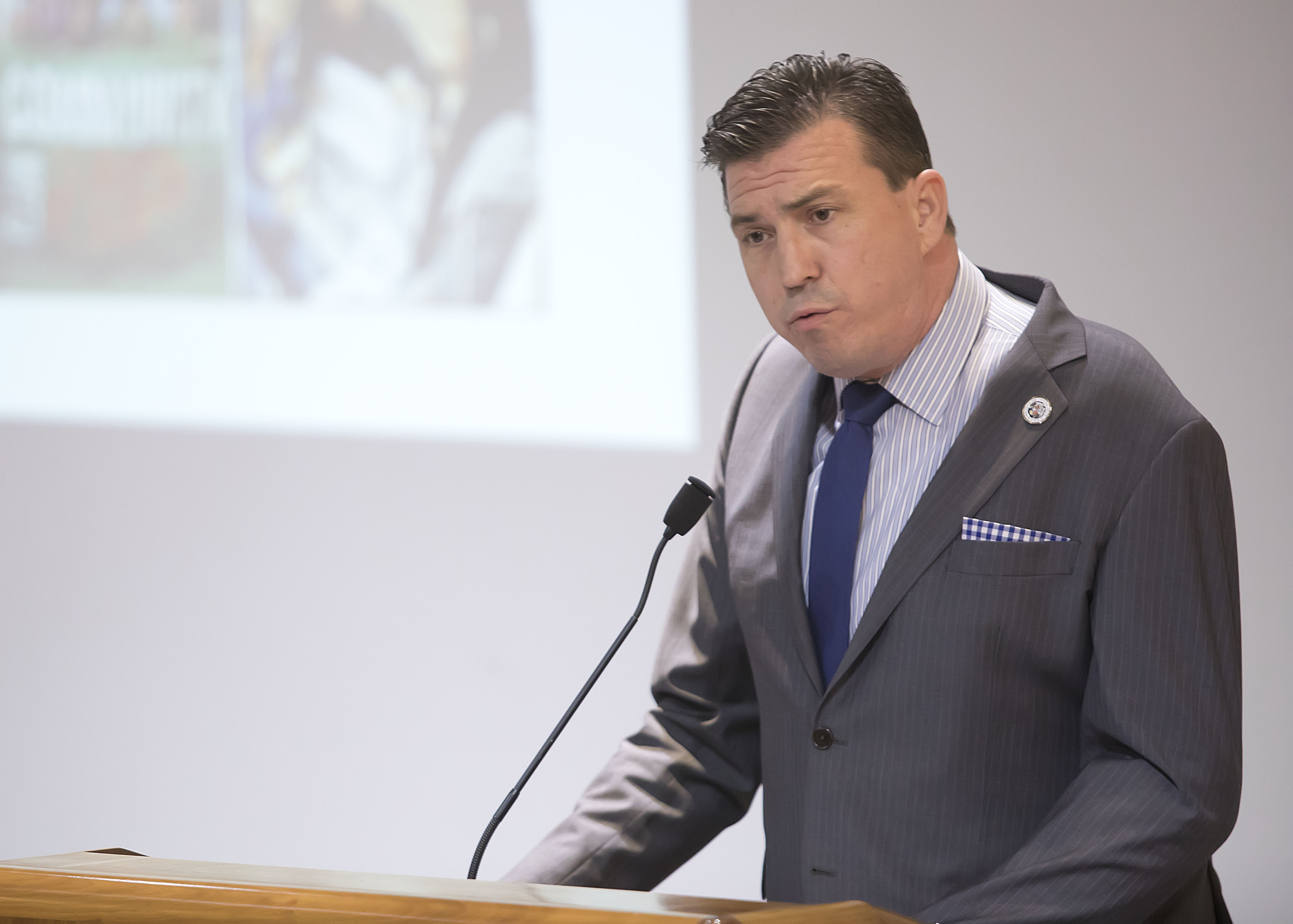
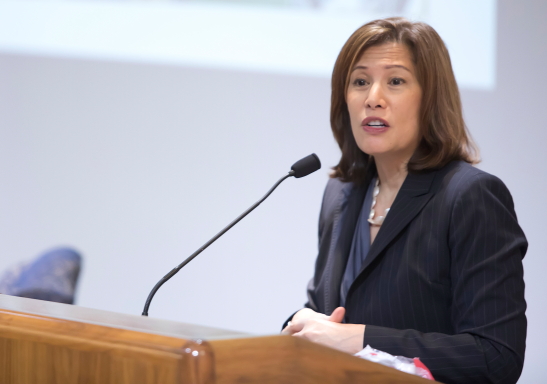
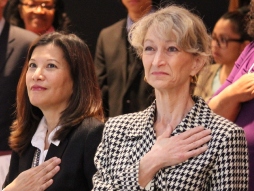 Opening Remarks: Justice Judith D. McConnell, Administrative Presiding Justice, Court of Appeal, Fourth Appellate District
Opening Remarks: Justice Judith D. McConnell, Administrative Presiding Justice, Court of Appeal, Fourth Appellate District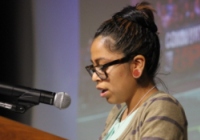
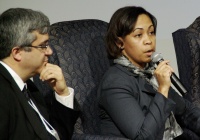
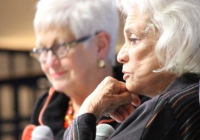 A Conversation with Justice Sandra Day O’Connor
A Conversation with Justice Sandra Day O’Connor